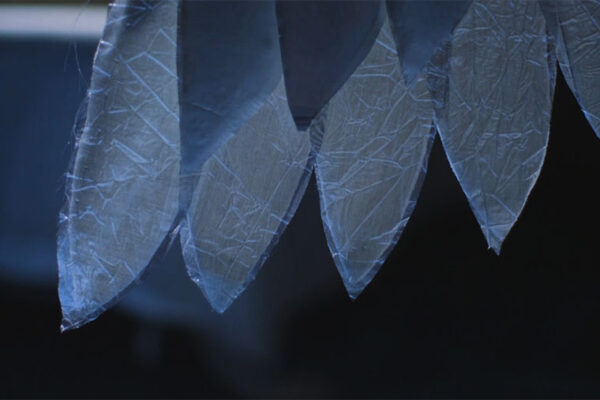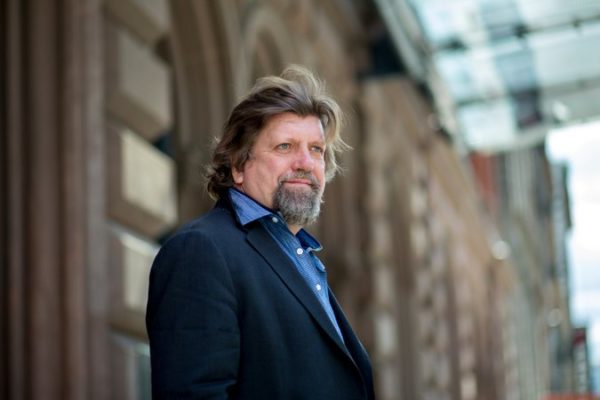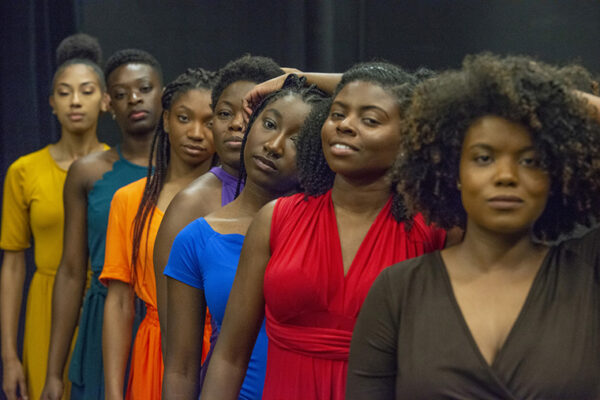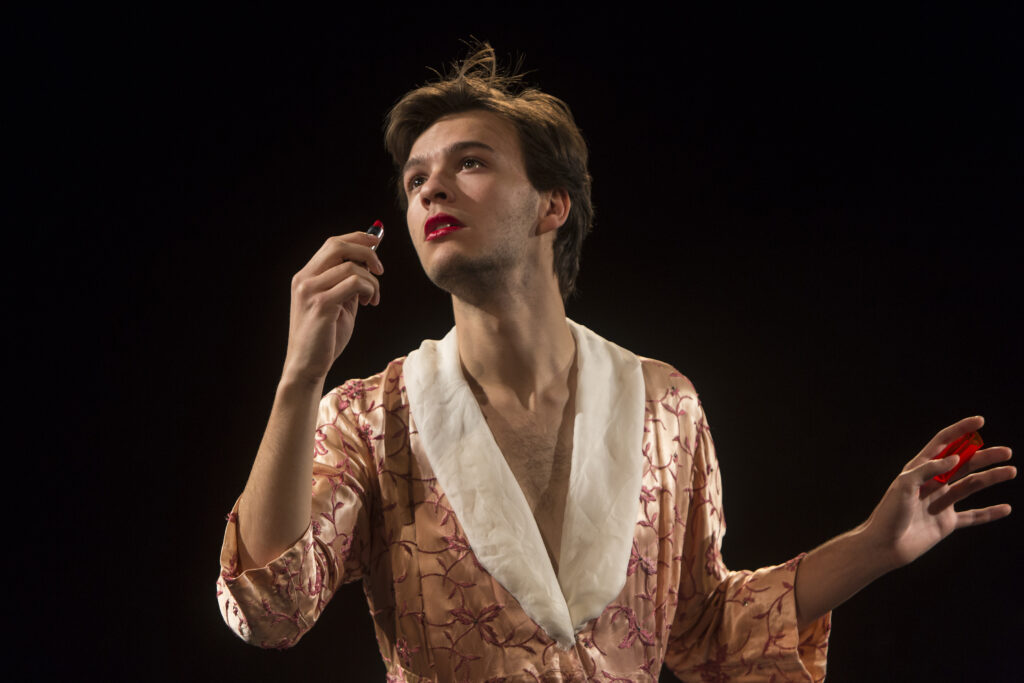
In the fall of 1985, Tony Kushner left New York for the Repertory Theatre of St. Louis, where he spent a year as an assistant director. A few months later, “the first person that I knew personally died of AIDS,” Kushner told Slate. “A dancer that I had a huge crush on, a very sweet man and very beautiful.”
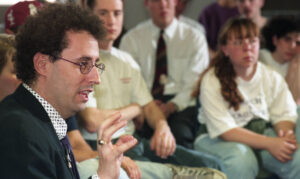
Afterward, Kushner dreamed. His friend was sick, wearing pajamas. The ceiling collapsed. An angel soared into the room. Kushner awoke. He wrote a long poem and put it away. The title?
“Angels in America.”
Something fundamental
Six years later, that fistful of pages had grown into an epic drama. “Angels in America: Millennium Approaches,” debuted at San Francisco’s Eureka Theatre in May 1991 and soon was followed by “Angels in America: Perestroika.” In 1993, both parts moved to Broadway, and Kushner won the Pulitzer Prize for Drama.
“’Angels in America’ is arguably the greatest American play of the last quarter-century, and one of the greatest ever written,” said Henry Schvey, professor in the Performing Arts Department (PAD) in Arts & Sciences, who will direct “Millennium Approaches” in Edison Theatre Feb. 22-March 3.
“That alone is sufficient reason to revisit it, but the play also resonates tremendously today,” Schvey added. With its themes of community, identity and political power, “‘Angels in America’ captures something fundamental about our culture and our current moment.”
The center of the American story
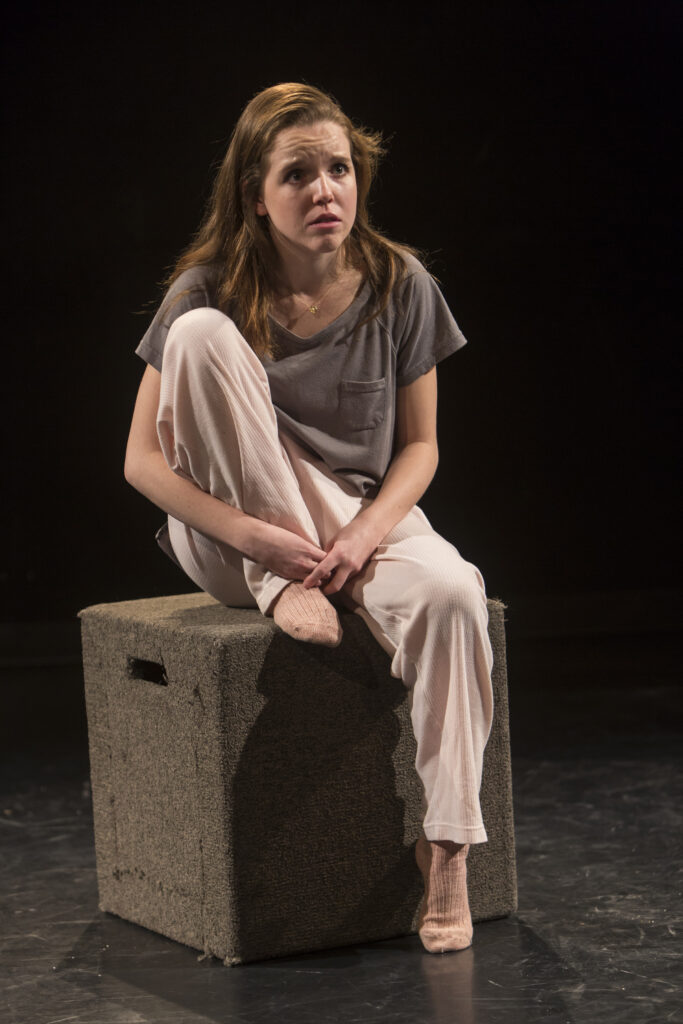
Set in New York in the mid-1980s, “Millennium Approaches” follows two couples. Prior, last scion of an old WASP family, is shattered by the appearance of Kaposi’s sarcoma, “the wine-dark kiss of the angel of death”; Louis, his frightened lover, slowly flees. Joe, a closeted Mormon lawyer, falls into the orbit of fading power-broker Roy Cohn while Harper, Joe’s anxious wife, self-medicates at home.
“At the heart of the play is a question about who gets to be a citizen of this country,” said dramaturgical coordinator Paige McGinley, who directs the master’s in theatre and performance studies. “Gay people, people with AIDS, the addicted — these are often seen as society’s most disposable. Kushner puts them at the center of the American story.”
Dramaturg Nathan Lamp, a master’s candidate in theatre and performance studies, notes that the real-life Cohn, who famously mentored a young Donald Trump, “represents a secret history of American politics, from the Rosenberg trial and McCarthy hearings to the ‘Reagan Revolution’ of the 1980s.”
(Though he died of AIDS-related causes, Cohn, like his character in the play, insisted on calling his disease “liver cancer.”)
“Kushner writes with pain, and sadness, and loss — but also with hope,” Lamp said. He points to an early moment when Prior and Harper collide in a dream. “In many ways, they’re the play’s most vulnerable characters. Prior is dying, Harper is addicted to Valium. But there’s lightness and humor to their meeting, as well as kindness and curiosity. They learn to truly listen to one another.
“If there’s anything our country could use more of right now, it’s that ability to empathetically listen.”
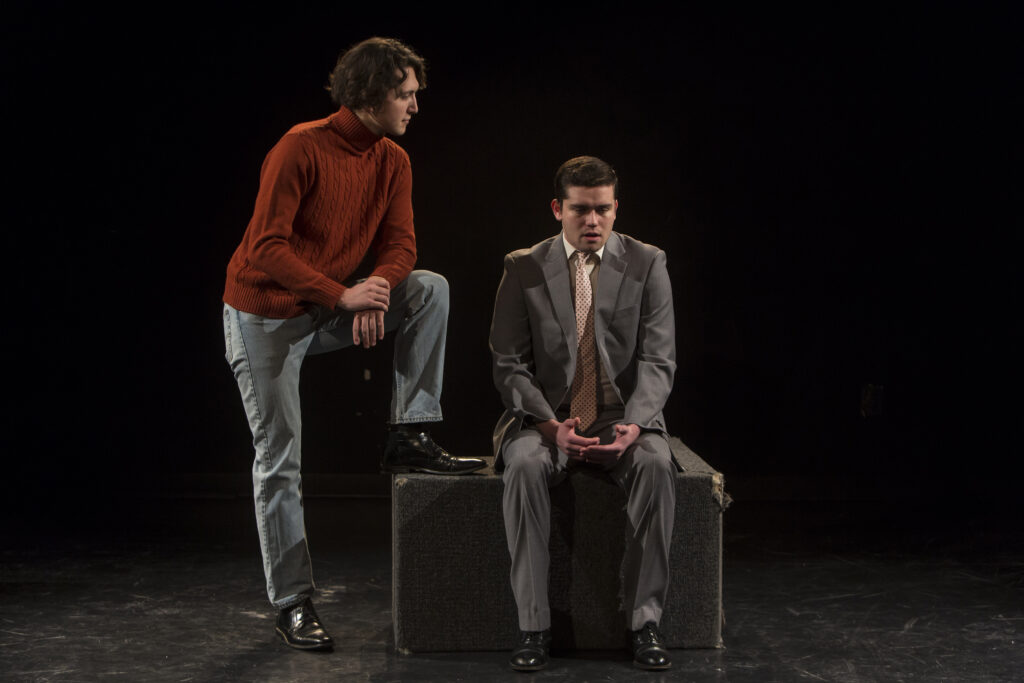
Cast and crew
The cast of nine stars Louis Gordon and Alex Knapp as Prior and Louis, and Nathan Wetter and Stephanie Wright as Joe and Harper.
Stephen Reaugh is the raging Roy Cohn. Justin Wright is Prior’s gentle ex-lover Belize, a nurse and former drag queen. Jacque Randolph is the Angel, sent to prepare Prior for a “Great Work.” Kelley Abell is Hannah, Joe’s devout mother. Helen Fox rounds out the cast in a variety of roles.
Sets and costumes are by Rob Morgan and Mona Jahani. Sound and lighting are by Benjamin Lewis and Jeremy Pomerantz. Original music is composed by William Lenihan. Caroline Sullivan is stage manager, with assistance from Marek Rodriguez. Emily Finck and Abigail Rosen are assistant directors. Kaia Lyons and Emily Parise round out the dramaturgical team. Props are by Emily Frei.
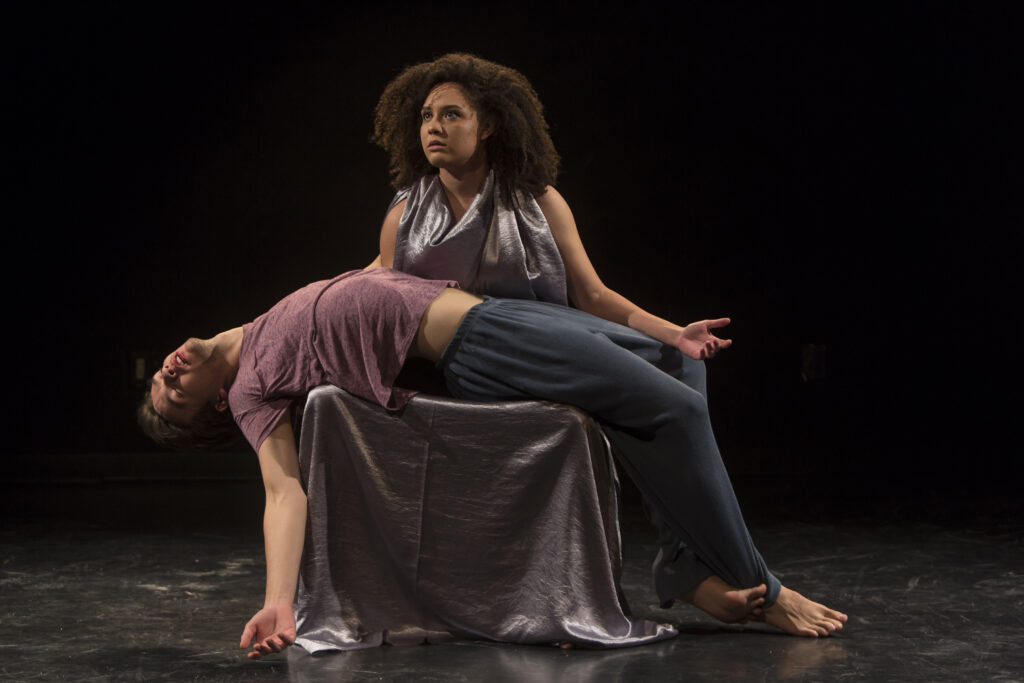
Tickets and events
“Angels in America” begins at 7 p.m. Friday and Saturday, Feb. 22 and 23; and at 2 p.m. Sunday, Feb. 24. Performances continue the following weekend, at 7 p.m. Friday and Saturday, March 1 and 2; and at 2 p.m. Sunday, March 3.
Performances take place in Edison Theatre, located in Mallinckrodt Center, 6465 Forsyth Blvd. Tickets are $20, or $15 for students, seniors and Washington University faculty and staff, and free for WashU students. Tickets are available through the Edison Theatre Box Office.
In conjunction with the performances, the PAD will present a series of attendant events, including an exploration of HIV and social work (Feb. 11), a section of the internationally celebrated AIDS Memorial Quilt displayed in Mallinckrodt Center (beginning Feb. 18) and a symposium (Feb. 25). For more information, visit pad.wustl.edu or call 314-935-6543.
